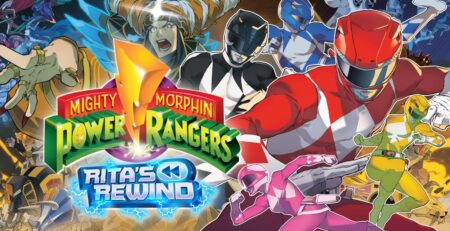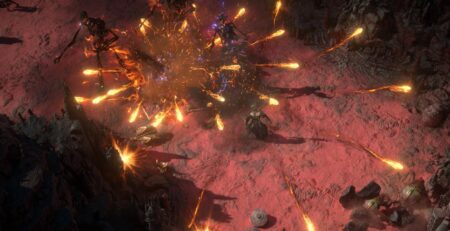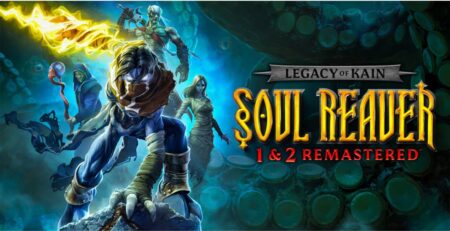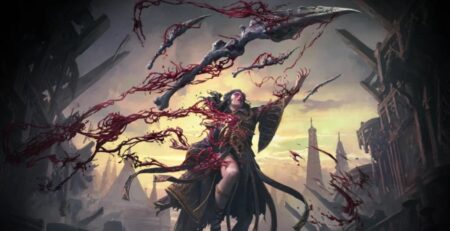
War rages between kingdoms. Vengeful kings throw their people into the cauldron of war in the name of pride and wrath. Unbeknownst among the chaos, an even more sinister force lurks in the shadows. Is there anyone who can bring peace back to these troubled lands? Dark Deity is a fantasy tactics game developed by Sword and Axe LLC and published by Freedom Games.
There are few gems in gaming that make the gamer in me smile like when a game can meld intuitively deep tactical gameplay with fun, personable characters, and a meaningful leveling system. It’s not often that a developer can bring all these elements together in a way that delivers on each while also feeling fresh. Sword and Axe have managed just that with their tactics-driven fantasy game Dark Deity.
As our game opens, the player is introduced to the students of a prestigious military academy as they prepare to take their field exam. This standard test serves as both the game’s tutorial and gives the player a chance to meet the first of many memorable characters that will come to fill their party. It is these memorable characters that helped to give me that extra focus and drive to keep going back to play one more mission. I wanted to make sure young Alden’s cheerful self would get through the next battle safely. Or what mischief I’d learn about from the energetic Sophia and her pet ferret, Butter. While the gameplay is skillfully executed, it is the charming personalities and learning their stories in between missions that are the true reward for a hard-won battle in Dark Deity. These character moments are gifted to the player in the form of the game’s bonds system.
Like Fire Emblem, characters gain bonds with each other if they fight by each other’s side on the battlefield. These bonds result in short, text-based sequences where the player observes the two characters having a conversation. These conversations range from snide interactions to playful banter and even more personal moments. But what they all have in common is the sheer joy they impart upon the viewer. There wasn’t a single interaction that ever felt wasted or underwhelming to me. Coupled with the sense of accomplishment at winning a hard battle and the satisfaction of watching my party’s levels rise, these conversations made the gameplay loop of Dark Deity more than enough to keep me wanting to go back for more. And speaking of the gameplay, let’s dive into the nuts and bolts of what battles in this gem of a game entail exactly.
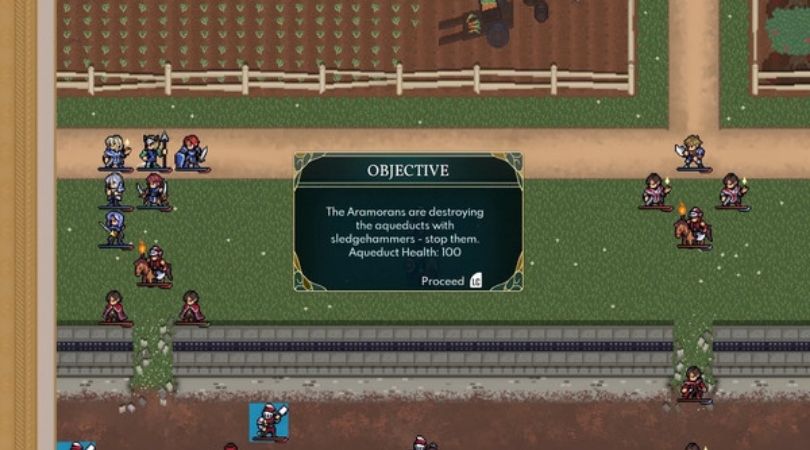
In the broad strokes, the tactical gameplay of Dark Deity will feel instantly familiar to veterans of the genre. Moving units, launching attacks, and utilizing special abilities, like push and disarm, all come together seamlessly. It is only when the player dives in a bit deeper that the game’s more unique aspects of gameplay become evident. The most noteworthy of these is how each character utilizes a veritable arsenal of weapons from the start to give the player lots of options in combat.
Each character has four different attacks at their disposal that take the forms of weapons or spells (in the case of magic users) that provide a ton of tactical nuance to battles. With each weapon having stats for damage, accuracy, critical hit chances, and weight, every confrontation within a battle can be approached differently, and it’s up to the player to decide what stats are most relevant to any given duel.
Do you choose the weapon with a 100% chance to hit but will leave the enemy standing, or go for the kill shot but only have a 79% chance of landing the blow? These options are made even more intricate between battles as the player has the opportunity to upgrade the individual weapons. This allows the player to possibly shore up weak points in a character’s arsenal or further power up a character’s most frequently used combat options. And while this customization of weapons gives the game lots of room to grow, it is far from the only way the game grows the abilities of its magnificent cast.
The least interactive aspect of Dark Deity‘s leveling system is the character levels themselves. As a character fights in battles and heals allies, they gain experience, ultimately resulting in the character gaining a level. The stat increases that come with leveling up are out of the player’s hands and seemingly random, with a given character’s preferred stats being far more likely to increase. While not having the option to handpick where stat buffs go, there is nonetheless a great moment of excitement when a character’s stats increase just the way you want. And if you really want to boost a particular stat on a character, the game does give players the option of purchasing permanent stat boosts in shops throughout the game. However, these boosts do come with a hefty price tag.
While the individual levels don’t provide any choice for the player, upon reaching specific levels, the player is given the choice of several prestige classes they can choose from to have the character gain. These classes are great all across the board. No choice was ever presented to me in these moments where I didn’t struggle with which new class was the best fit for what I wanted the character to achieve on the battlefield.
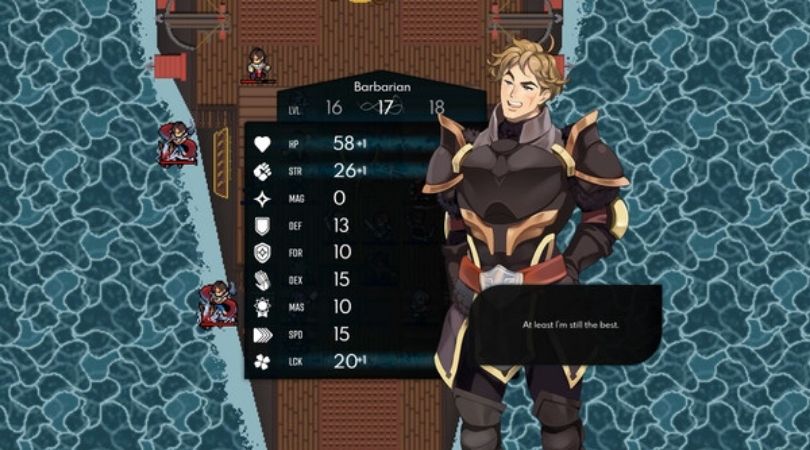
The last element of the Dark Deity that can alter how a unit grows comes if they fall in battle. If a character’s hit points ever fall to zero, they are removed from the battle, and one of their stats will be permanently reduced. This setback for a character is serious enough to keep a player from putting their units at needless risk while not being near as punishing as the genre’s other favorite outcome: permanent death.
Delivering all this great choice in tactical gameplay and character-driven moments is a classic graphics style that utilizes gorgeous pixel art for the game’s many battles and expressive still images for the character interactions and story moments. All the personality and charm of the characters are captured wonderfully throughout the game’s visuals.
The only thing holding Dark Deity back from being pure gaming gold is its tendency to be a bit obtuse with how some of its systems exactly work. For example, numerous passive abilities are referred to as their might. I don’t know what that means. Characters have a strength stat. Weapons and magic spells have a damage stat. Is might one of these? Some sort of derived score of the two put together? I just don’t know. And if the game explains it, I never came across where that information is. While there are a few instances of similar unclear stat interactions, happily, none of these moments of mirky number calculations ever made me feel like I didn’t have a handle on what was going on in the moment-to-moment fights that happen on screen.
When all is said and done, Dark Deity delivers virtually everything I could ask for from an entry into one of my favorite genres. Fun, intricate battles, meaningful character progression, and a cast of characters I quickly became invested in. If these features sound appealing to you, I cannot recommend this game enough.
Dark Deity is available now on PC.
Dark Deity
-
Rating - 9.5/109.5/10
TL;DR
Dark Deity delivers virtually everything I could ask for from an entry into one of my favorite genres. Fun, intricate battles, meaningful character progression, and a cast of characters I quickly became invested in. If these features sound appealing to you, I cannot recommend this game enough.

